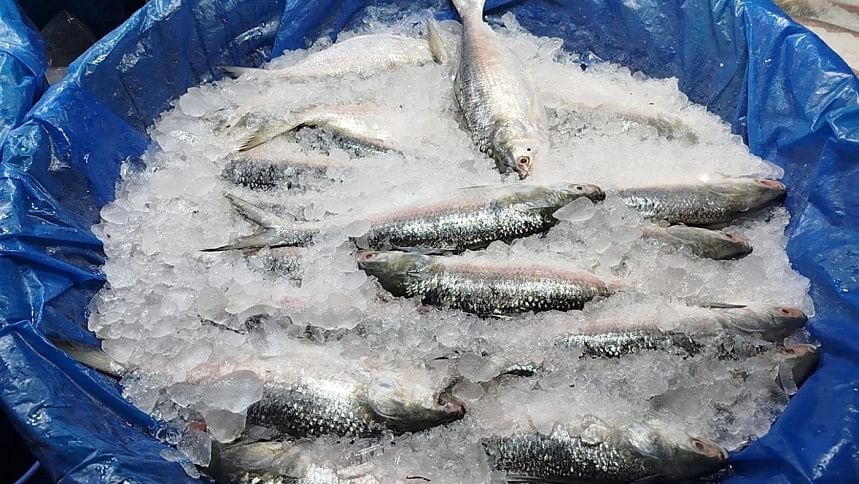Hilsa under threat: Illegal nets and catching jatka fuel decline, says adviser

Hilsa production in Bangladesh has seen a decline due to multiple factors including continuous use of illegal nets and indiscriminate catching of jatka (fry), Fisheries and Livestock Adviser Farida Akhter said today.
She also pointed to several other reasons -- loss of river navigability, climate change, and development projects along the riverbanks near hilsa sanctuaries.
The adviser was speaking to the reporters after attending a workshop on buffalo grazing at Barishal Club this morning.
She said, "The government is taking strict measures including special drives to curb illegal fishing as well as to ensure jatka protection and uninterrupted breeding seasons."
"We are conducting drives, and hopefully hilsa production will increase and prices will come down in the coming days," she said adding that the government is also planning to regulate the chain of middlemen between rivers and retail markets.
At the workshop, speakers said that buffalo grazing areas in coastal regions are shrinking rapidly due to climate change, land grabbing, and unregulated agricultural expansion, putting buffalo farming at risk.
They recommended that the government adopt a clear policy, ensure long-term grazing land management, and involve local communities in the process to unlock new economic prospects for the buffalo sector.
Grameen Jono Unnayan Sangstha (GJUS), Bangladesh Buffalo Association, and Coastal Vet Society Bangladesh jointly organised the workshop.

 For all latest news, follow The Daily Star's Google News channel.
For all latest news, follow The Daily Star's Google News channel. 



Comments